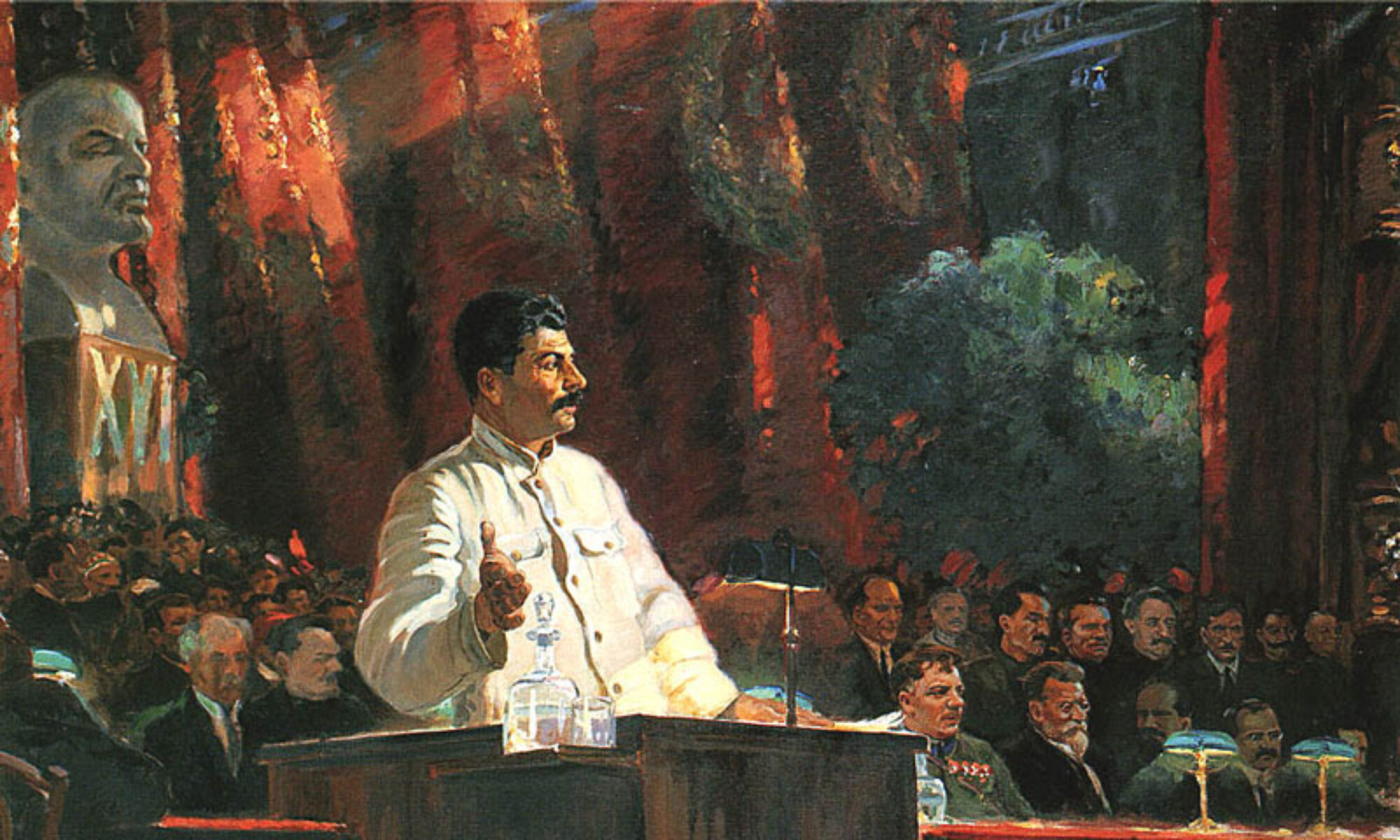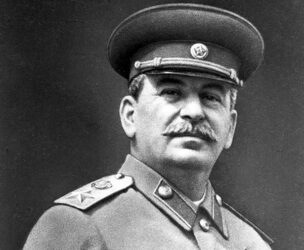In the movie The Cranes are Flying shows how you can lose someone so fast to getting drafted. Even though Boris was not drafted and he volunteered but he was probably going to get drafted anyways. This movie shows romanticized views of war propagated by socialist realism. In the beginning of the movie they were skipping and looked so happy together but then Boris got sent off into war and Veronika became very lonely and emotionally fragile. Veronika ended up marrying Boris’ step brother Mark after Mark rapped and took advantage of Veronika. Do you think Veronika married Mark because of the rape or because she thought she would never see Boris again?
The Death of a Parent
In the movie The Cranes are Flying, the parents of Veronika are killed in an air raid. Around the 35 minute mark, we see her parents refusing to leave the house when the raid comes. Then Veronika returns home and her parents have been killed, because of their refusal to leave. This shows both ego and sacrifice, a lot of people thought that they would survive the war and it would not change their lives. Many people had to give their lives to be able to win the war. The actions of her parents greatly complicate Veronika’s life – see is now a homeless orphan. This would have been common in the years of war that occurred through the Soviet Union. The film does a good job showing how complicated decisions were and how people suffered during the war. Do you think that many people died like Veronika’s parents? Do you think that her reaction was natural to the untimely death of her parents? Does this show the humanity of death and mistakes made during the war?
An Expected Ending with a small Twist
Watching the film, there were a number of really interesting scenes to discuss, but that last scene stood out. We have all seen movies and shows that revolve around war. When the war is over and the soldiers get to return home, we see the celebration of victory and the reunion of families. That is how I would expect a movie like this to end. For me, the Soviet twist here is when Veronica hands starts handing out the flowers to strangers. It is as if Stepan’s speech and her experiences throughout the movie have almost helped her see that the flowers belong to everyone. Everyone in the Soviet Union played a role in the war effort. It really is great branding for the Soviet government. At the same time, we see how memories of war can destroy lives. What are your thoughts on the final scene? Is there anything to say about Stepan’s speech advocating for peace? Again, after the harsh experiences of war, of course you might want to try to avoid another one, but that is probably not realistic.
The Cranes Are Flying
The movie opens with a scene that resembles the end to a romantic comedy, with the happy couple skipping off into the sunset. This sets the stage for a cute young love story, but instead the couple is ripped apart by war. Squirrels in a sad marriage to a man that took advantage of her when she was in need of someone to hold her up. Why does the movie open with such a loving scene of this couple just to tear them apart? Do you think this had something to do with support for the party?
The Cranes Are Flying
I think this film did a really good job in capturing the reality of war in a way. In the beginning, there was Boris who ended up being called off to war after they thought it was not going to happen and he had to tell her. It was kind of standoffish and not really the romantic goodbye they should have had. Then even later on, the film has Boris’s cousin take advantage of the woman while he was away and then after he dies, she marries him! This could have been representative of a lot of what women went through and the pain that exists.
Also, I thought it was interesting when they were having Boris’s goodbye dinner and the girls were telling the story about saying goodbye to their brother and how the girls will be envious of their experience when they come back. This shows the odd relationship of the kind of uselessness women felt and the desire to do more.
Into the Whirlwind
In chapter 18 Ginzburg is put on the conveyor belt again for five days, returning to her cell for three hours each day. Because she still refuses to sign either of the two statements offered to her. Two witnesses are brought in, one at time. Ginzburg knows both these witnesses and instead of them trying to help her they lie to protect themselves. Both the witnesses had the same answer which made it look bad for Ginzburg even though they were lying to protect themselves. Both of the witnesses felt bad because she was their friend but they were protecting themselves.
If you were in this situation would you try to help a friend or try to protect yourself and your family?
Would silence have stopped the purges?
Love of Party?
“Tell them straight out, you disagree with Stalin’s line, and name as many other who disagree as you can. They can’t arrest the whole Party, and by the time they have thousands of such cases on their hands, someone will think of calling an extraordinary Party congress and there will be a chance of overthrowing him. […] Of course it may mean the end for us, but it’s the only way to save the Party” (75).
The above quote is transmitted to Eugenia by Garey. He has been in prison longer than her, and he has hatched this idea that by sending the police on a wild-goose chase, it will save the Party. Obviously, this plan does not seem to be well developed. I think we could definitely talk about the absurdity of this plan, but I think a more compelling discussion would come from talking about Garey’s motives. Here is this man, a well established party member, who has been harassed, beaten, and imprisoned by the Party. But, he still wants to save it. Why? I think Eugenia’s rational for not doing what Garey suggested is very interesting since it also has to do with Party loyalty. What are we supposed to believe causes them to have faith things will get better and the Party will survive this terror?
family as a comfort
Throughout Ginzburg’s narrative, we have seen the importance of family to the prisoners: especially in imagining their family is safe outside of the prison walls. In Chapters 21 and 22, we can see just how important Genia and Zina’s families are to them and how their safety is a comfort. Genia, until this chapter, was comforted by the fact that her children were safe with their father and being taken care of. Once she heard that her husband had been imprisoned, this comfort was taken away from her. Genia says, ” Up to now I had kept such memories at bay by telling myself: “The children are with their father.” Foolishly, I had thought our family would be spared”. After the news of her husband’s arrest, Genia is distraught, but she is comforted by a new family of hers – unconventional as it may be. Her cellmates become quite a family. When Genia gets the news, it is her cellmates, particularly Lydia, who comfort her while she mourns the loss of her family’s imagined security.
When Zina is added to the group, the cell family protects each other from the threat of a newcomer. Gaining entrance into their family isn’t easy, but once Zina suffers severely at the hands of the guards, the ranks open to comfort her. Genia tries to comfort Zina by reciting the names of her children, hoping it will bring comfort to her while Zina tries to sleep.
Family can come in different shapes, but the comfort it provides remains the same. Would you agree that the cellmates Genia has had become a family and, if so, do you believe they bring her comfort?
What Goes Around Comes Back Around
The quote that sticks out to me the most from this section of Journey into the Whirlwind is one from the prison conversations: “I tell you frankly that I’m glad the Communists are beginning to get a taste of their own medicine” (Ginzburg 112). This is in response to the mass arrests of the communist leaders and party heavyweights. The people that had formerly been in power and had been spoiled with the power that they had received over the past 15 years were now getting a taste of the other side. The point that Derkovskaya is making in this statement is based on her own experiences with the communist party and there were most likely other people in the prisons and camps that felt the same way. She had been imprisoned for their opposition by the leaders like Genia, and now it is her turn. Do you think that there were enemies within the prison system that were glad to see people like Genia join their ranks? Do you that Genia and other party leaders bear responsibility for the crimes of the party and this is part of their punishment?
Into the Whirlwind
It begins on December 1, 1934, and someone tells Ginzburg that someone has assassinated Kirov, the secretary of the Communist Party’s General Committee. His murder generates paranoia about the dissident political elements within the party, and the government tightens its grip on society. Ginzburg is personally drawn into the fray when her old friend, Professor Elvov, is arrested in 1935. Ginzburg sees Stalin as ugly and can see his vision of evil. From the other first-person papers, we have read this is the first one that really says she can see the true colors of Stalin. Did the government have too much power? Why do you think Ginzburg could see that Stalin has a vision of Evil?

